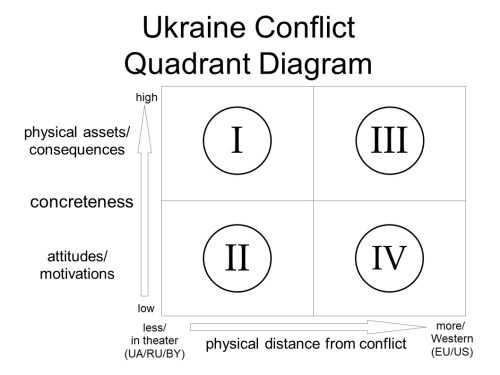In Arthur Koestler’s 1940 novel Darkness at Noon, the protagonist is an Old Bolshevik who has himself been arrested by the Stalinist regime for political deviations and is facing likely execution. During his imprisonment, he muses about many things, including…
A short time ago, our leading agriculturist, B., was shot with thirty of his collaborators because he maintained the opinion that nitrate artificial manure was superior to potash. No. 1 is all for potash; therefore B. and the thirty had to be liquidated as saboteurs. In a nationally centralized agriculture, the alternative of nitrate or potash is of enormous importance: it can decide the issue of the next war. If No. I was in the right, history will absolve him, and the execution of the thirty-one men will be a mere bagatelle. If he was wrong…
(emphasis added)
And in real life, Soviet agriculture was greatly harmed by the officially-adopted crackpot theories of Trofim Lysenko, as well as by collectivization. Nikita Khrushchev was very enthusiastic about what he learned of America methods in farming, especially with corn, and insisted that these methods be applied in the Soviet Union–the effort was not successful because it too often ignored local factors like climate as well as general factors such as working-level knowledge and incentives.
In Sri Lanka in 2019, newly-elected President Gotabaya Rajapaksa embarked on a program to the transition his country’s farmers to organic agriculture. Importation and use of pesticides and synthetic fertilizers were banned, and the country’s 2 million farmers were ordered to go organic. The project has been a disaster. Rice and tea production are both down, and half a million people have fallen back into poverty.
And in 2022, the world is facing serious fertilizer shortage, driven in part by the loss of exports from Russia and Ukraine, with prices also driven upward by natural gas prices…this in addition to the considerable reduction in wheat exports from both countries. A complete shutoff of Russian gas to Europe could make things worse, given that gas is a key feedstock for fertilizer manufacturing, that Europe has not built adequate LNG import facilities to replace the Russian gas, and that sufficient LNG from the US may not be available anyhow–a constraint not helped by the Biden administration’s anti-fossil-fuel ideology and policies. There may be actual famine in some countries, with predictable results in political instability, and plenty of family budgets being squeezed in the USA.
The response from the Biden administration?…Perhaps a new ‘warp-speed’ type of project to accelerate fertilizer output and improve fertilizer logistics?
Nope.
USAID administrator Samantha Power:
Fertilizer shortages are real now because Russia is a big exporter of fertilizer. And even though fertilizer is not sanctioned, less fertilizer is coming out of Russia..As a result, we’re working with countries to think about natural solutions like manure and compost. And this may hasten transitions that would have been in the interest of farmers to make eventually anyway.
Because farmers don’t know what is in their best interest, but of course you do, Samantha. See this post at Watts Up With That? on the realities of agriculture and the nutrients that plants need. (Do you think Samantha Power knows what the Haber-Bosch process is and why it has been historically important? I’m betting the answer is No.)
Note especially the part of the excerpt from Koestler’s novel that I bolded: “In a nationally centralized agriculture”. When major activities are centralized, every key decision becomes of dramatic, critical, life-and-death importance. Those making the decisions will be convinced that their decisions are right, and are very likely to use all tools at their disposal to enforce compliance and prevent criticism.
See my related post The Logic of Insatiable Centralization.
